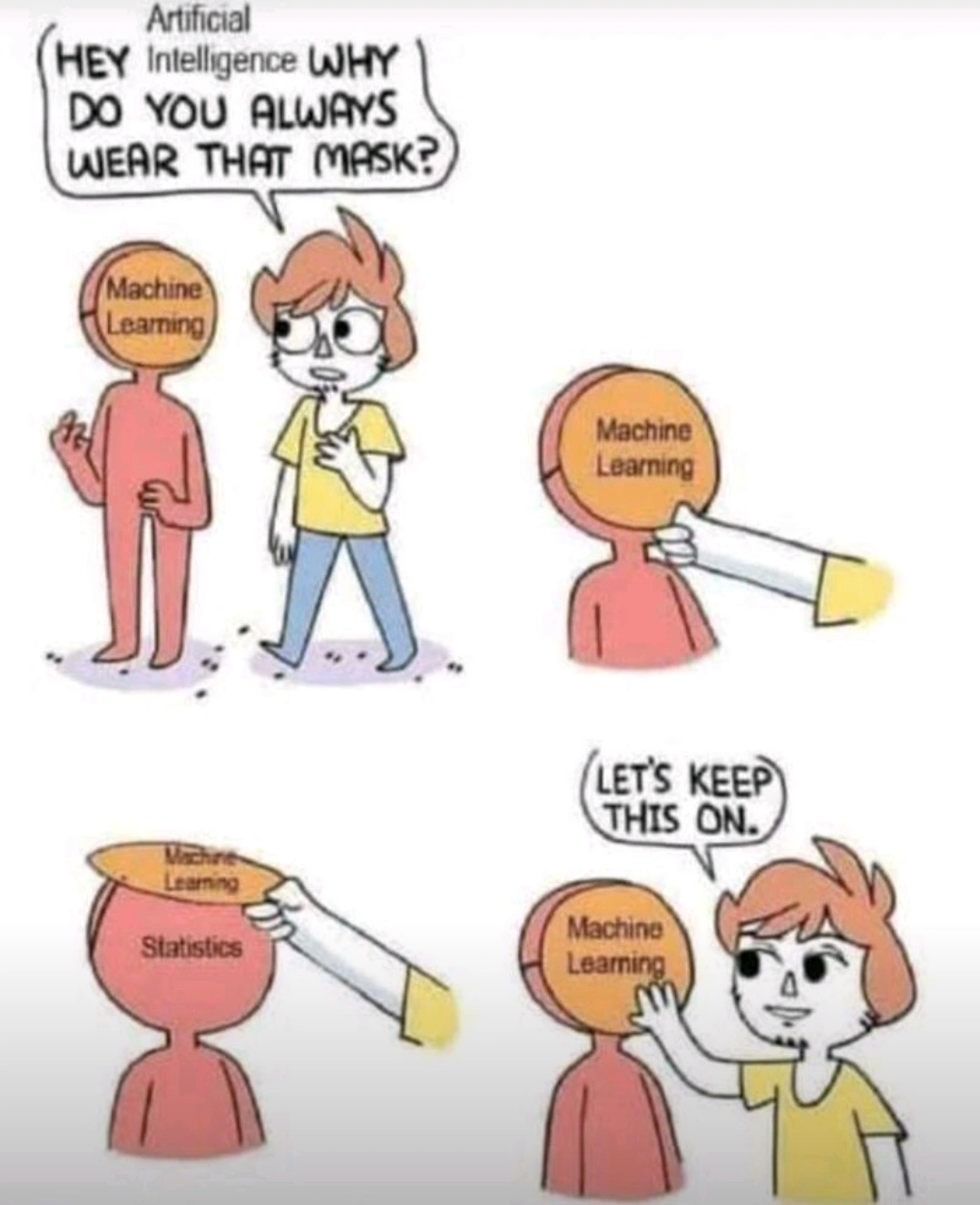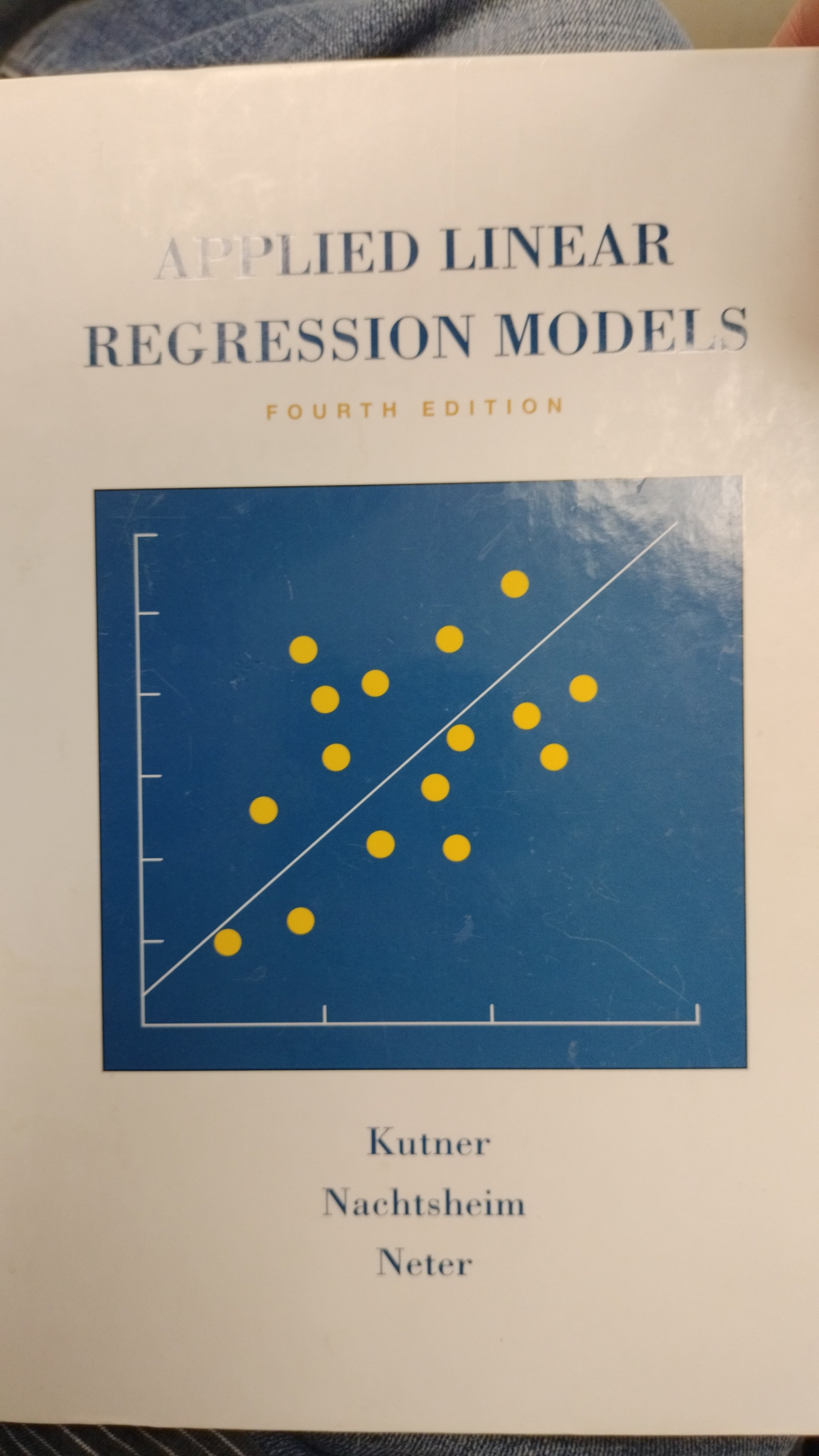this post was submitted on 08 Jul 2024
528 points (97.1% liked)
Science Memes
11021 readers
3653 users here now
Welcome to c/science_memes @ Mander.xyz!
A place for majestic STEMLORD peacocking, as well as memes about the realities of working in a lab.

Rules
- Don't throw mud. Behave like an intellectual and remember the human.
- Keep it rooted (on topic).
- No spam.
- Infographics welcome, get schooled.
This is a science community. We use the Dawkins definition of meme.
Research Committee
Other Mander Communities
Science and Research
Biology and Life Sciences
- [email protected]
- [email protected]
- [email protected]
- [email protected]
- [email protected]
- [email protected]
- [email protected]
- [email protected]
- [email protected]
- [email protected]
- [email protected]
- [email protected]
- [email protected]
- [email protected]
- [email protected]
- [email protected]
- [email protected]
- [email protected]
- [email protected]
- [email protected]
- [email protected]
- [email protected]
- [email protected]
- [email protected]
- !reptiles and [email protected]
Physical Sciences
- [email protected]
- [email protected]
- [email protected]
- [email protected]
- [email protected]
- [email protected]
- [email protected]
- [email protected]
- [email protected]
Humanities and Social Sciences
Practical and Applied Sciences
- !exercise-and [email protected]
- [email protected]
- !self [email protected]
- [email protected]
- [email protected]
- [email protected]
Memes
Miscellaneous
founded 2 years ago
MODERATORS
you are viewing a single comment's thread
view the rest of the comments
view the rest of the comments

Neural nets, including LLMs, have almost nothing to do with statistics. There are many different methods in Machine Learning. Many of them are applied statistics, but neural nets are not. If you have any ideas about how statistics are at the bottom of LLMs, you are probably thinking about some other ML technique. One that has nothing to do with LLMs.
Software developer here, the more I learn about neural networks, the more they seem like very convoluted statistics. They also just a simplified form of neurons, and thus I advise against overhumanization, even if they're called "neurons" and/or Alex.
How so?
Hahaha. People are great.
That's where the almost comes in. Unfortunately, there are many traps for the unwary stochastic parrot.
Training a neural net can be seen as a generalized regression analysis. But that's not where it comes from. Inspiration comes mainly from biology, and also from physics. It's not a result of developing better statistics. Training algorithms, like Backprop, were developed for the purpose. It's not something that the pioneers could look up in a stats textbook. This is why the terminology is different. Where the same terms are used, they don't mean quite the same thing, unfortunately.
Many developments crucial for LLMs have no counterpart in statistics, like fine-tuning, RLHF, or self-attention. Conversely, what you typically want from a regression - such as neatly interpretable parameters with error bars - is conspicuously absent in ANNs.
Any ideas you have formed about LLMs, based on the understanding that they are just statistics, are very likely wrong.
"such as neatly interpretable parameters"
Hahaha, hahahahahaha.
Hahahahaha.
If parameters aren’t neatly interpretable then it’s bad statistics. You’ve learned nothing about the general structure of the data.
Linear regression models are often great tools for explaining the structure of the data. You can directly see which parts of the input are more important for determining the output. You have very little of that when using neural networks with more than 1 hidden layer.
"If parameters aren’t neatly interpretable then it’s bad statistics."
Haha, keep going guys. You obviously know a lot about statistics.
https://www.nature.com/articles/nmeth.4642
This article use different wording than me, but in essence: Statistics is mostly about using a known model to explain the data. Machine Learning is mostly about finding any model that predicts the data well. Different purposes with some overlap. Some statistical methods are used in Machine Learning, but that doesn’t necessarily mean all of Machine Learning is statistics.
Another (potentially lower quality) article that is not from Nature, but discusses the meme in particular:
https://www.datarobot.com/blog/statistics-and-machine-learning-whats-the-difference/
Seeing your comment I wondered how someone publishing in Nature could have possibly left out the use of statistics for prediction. That would be a wild oversight that only someone with little knowledge of the topic would make, and surely not something that the editors of Nature would miss. Upon clicking the link I see that they mentioned it in the very first sentence and apparently ignore it if someone happens to call the prediction model a machine learning model. Using statistical models for prediction has been used since the start of the field, and renaming things that have been used for decades as "machine learning" doesn't suddenly make them not statistics.
Artificial neural networks are statistical models, with numerous statistical approaches associated with their use, development and interpretation.
That book probably doesn’t go much further than neural networks with 1 hidden layer. Maybe 2 hidden layers at most.
IMO, statistics is about explaining data. Regression is useful to explain how parameters relate to each others. Statistics that don’t help us understand data isn’t useful statistics.
Modern machine learning has strayed far away from data explanation. Now it’s common to deal with more than a dozen hidden layers. It might have roots in statistics, but mostly it’s about brute forcing any curve to the data. It doesn’t help us understanding the data better, but at least we have approximated some function.
Care to reiterate?
Just because wheels have roots in horse wagons doesn’t mean cars are horse wagons
Wheels have roots in carriages
Whether you are a badass with a horse carriage or a cuck with a horseless carriage doesn’t really drive home your point
You know what I’m meaning